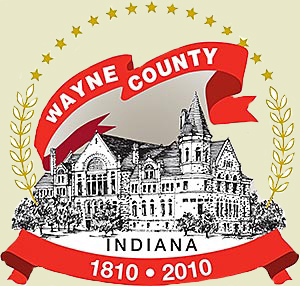Wayne County commissioners will accept comments about the possible increase in one part of the local property tax rate before an expected Jan. 22 vote.
However, officials want residents to know that an increase in one component doesn’t mean their entire property tax payment will double as some confusion arises.
After a public hearing in December, on Jan. 8, Commissioners Denny Burns and Ken Paust voted in favor and Mary Anne Butters voted against a plan to double the cumulative capital development tax rate that is one part of local property taxes.
A higher cumulative capital tax rate would mean the owner of a residential property worth about $100,000 would pay about $16.90 more per year, which would be levied beginning with taxes due and payable in the year 2021. However, that amount likely would be higher for farmers and owners of commercial and rental properties since their tax caps are higher. For instance, rental property owners’ tax rate is capped at double those of homeowners.
Because the vote wasn’t unanimous, a second vote is required for an increase to be approved.
On Jan. 13, Commission President Ken Paust told Hometown Media Group he intends to bring the issue up for a vote at the Jan. 22 meeting in council/commissioners chambers in the administration annex, 401 E. Main St., likely after 10 a.m.
Because the potential tax increase already has been discussed at an advertised public hearing, Paust said there will be no public discussion about the topic at that meeting or the Jan. 15 meeting, but those who have questions or concerns may contact the commissioners via phone, email or mail in advance of the Jan. 22 meeting. Paust said the tax rate will not be on the agenda that he will set for the Jan. 15 meeting.
On Monday afternoon, Paust said he had received about a dozen messages at the commissioners’ office that day, and he said he planned to call each person back to hear their concerns since some mistakenly believe that their property tax bill will double.
A higher cumulative capital tax rate would mean the owner of a residential property worth about $100,000 would pay about $16.90 more per year, which would be levied beginning with taxes due and payable in the year 2021.
Butters said she expects any increase would be passed on to those who rent commercial property or homes. She said she believes it will hurt farmers, small business owners and renters the most, affecting the poor more than anyone. Butters also expresses concern that the cumulative capital development tax rate would ever be lowered after it’s passed.
Why are commissioners considering increasing the rate to 0.0333 per $100 of assessed valuation?
Commissioners are responsible for county facilities, and the county’s three commissioners have the right to set and adjust one tax rate, which is for cumulative capital development. All other taxes are overseen by the seven county council members.
Money raised for cumulative capital development can be used for capital purchases ranging from vehicles for sheriff’s deputies to courthouse improvements and long-term capital investments such as buildings, Butters said.
Butters said she believes it’s an unnecessary tax increase, because if $400,000 was needed, she said commissioners shouldn’t have voted to purchase a building across from the administration annex building for the county’s public health department.
The health department’s community health center and environmental health departments are splitting this year, and the clinic will remain in its current home.
Butters said she believes there’s enough space in the county annex for public health needs such as food establishment inspections, sewage disposal permits and inspections, public pool and spa monitoring, birth and death certificates and other vital records.
Money raised through a higher tax can go toward a list of $5.8 million in suggested capital improvements to county facilities.
However, Butters said the items are on a wish list rather than eminent needs, and she believes the engineering estimates for those projects were grossly inflated. She also said the county has $5 million in a Rainy Day fund, although she doesn’t want to spend all of the fund.
While the proposed increase was published in two legal notices advertising a public hearing on Dec. 11, Butters said she believes many county residents didn’t realize the widespread impact of the increase and what it would mean for them based on those notices.
She said two residents, both connected to Indiana Farm Bureau, attended and formally opposed the proposal increase at the hearing. No one spoke at the Jan. 8 meeting in relation to the proposal. Butters said she would like residents to have an additional chance to express their opinions about the proposed tax increase before a final vote because her social media posts over the weekend have generated a lot of responses.
Butters filed last week to run again for her seat in the May primary. Burns has indicated he does not plan to run for re-election. Paust’s seat is not on the ballot this year.
Paust, Burns and Butters can be reached at kpaust@co.wayne.in.us, dburns@co.wayne.in.us, or mabutters@co.wayne.in.us, respectively, or by calling the commissioners’ office at (765) 973-9237.
By Millicent Martin Emery

